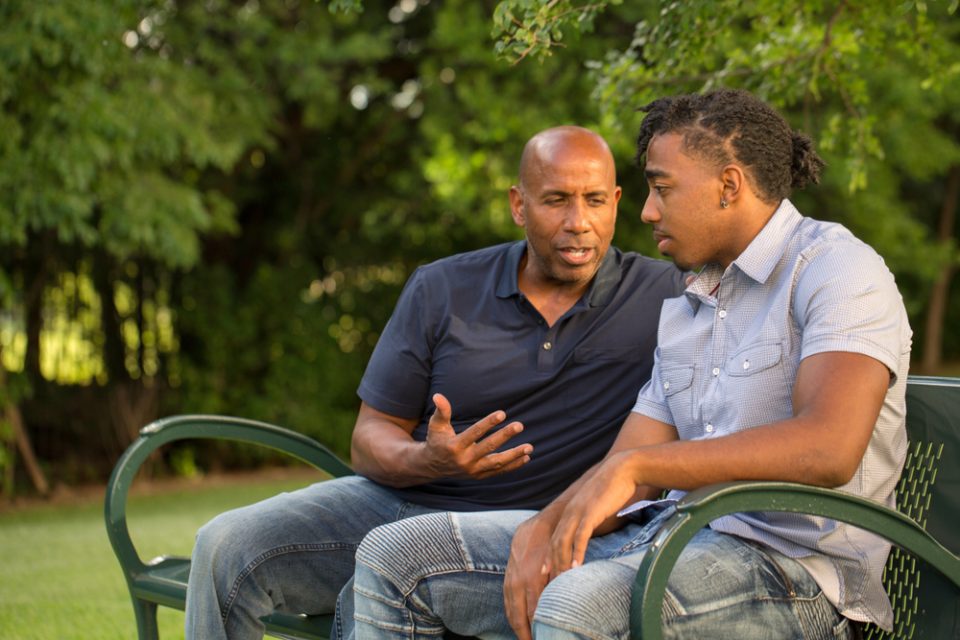
Prostate cancer is a significant health concern for men worldwide, and within this global issue, there’s a striking disparity among different racial and ethnic groups. Among these disparities, Black men in the United States are disproportionately affected by prostate cancer. The statistics are alarming, but what’s even more concerning is that the cycle of ignorance and misinformation often continues through generations. In this article, we will discuss why Black men with prostate cancer should take it upon themselves to inform their sons about this health issue early in life. By sharing their experiences, they can help their sons make informed decisions, raise awareness, and potentially change the course of history regarding this health crisis.
The alarming disparities
Prostate cancer affects all men, regardless of their racial or ethnic background. However, the rates of diagnosis and mortality associated with prostate cancer are significantly higher among Black men compared to their white counterparts. According to the American Cancer Society, Black men have a 76% higher risk of being diagnosed with prostate cancer and are more than twice as likely to die from the disease.
Breaking the silence
One of the key factors contributing to these disparities is the lack of awareness and open conversations within the Black community about prostate cancer. Many Black men are not educated about their risk factors, early detection methods, or available treatment options. Consequently, they often find themselves facing a prostate cancer diagnosis when it’s already in an advanced stage, limiting their chances of successful treatment.
The importance of early education
The phrase “knowledge is power” holds true when it comes to prostate cancer. Black men should take the initiative to educate their sons about the risks and the importance of early detection. Starting this conversation early in life can help young men understand their family’s medical history and their own risk factors. By doing so, they can make informed decisions about their healthcare and reduce the chances of facing prostate cancer at an advanced stage.
Changing the family health narrative
Prostate cancer can have a strong genetic component. Therefore, informing sons about a family history of the disease is crucial. This knowledge empowers the younger generation to monitor their health more closely and take preventive measures. Regular check-ups and screenings can help catch prostate cancer at an early, treatable stage.
The power of sharing personal stories
Personal stories have a profound impact on individuals, especially when it comes to health-related issues. Black men who have experienced prostate cancer firsthand can share their stories with their sons in a relatable and empathetic manner. This can create a sense of urgency and personal connection that statistics alone cannot achieve. Sons are more likely to take the threat seriously when they understand that it has affected their own family.
Breaking the stigma
Prostate cancer, like many other health issues, is often associated with stigma and silence. Men, in general, tend to be reticent about discussing their health, and cultural factors can exacerbate this tendency within the Black community. However, by openly discussing prostate cancer within the family, fathers can help break down these barriers and reduce the stigma associated with the disease.
Educating beyond the family
Empowering your sons with knowledge about prostate cancer also has a ripple effect. As they grow up, they can share what they’ve learned with their friends and peers, further raising awareness in the community. This grassroots approach can lead to a broader cultural shift in how prostate cancer is perceived and addressed among Black men.
Prostate cancer disparities among Black men are a pressing issue that needs to be addressed at both the individual and community levels. By sharing their experiences and knowledge with their sons, Black men can play a pivotal role in altering the trajectory of this health crisis. It’s time to break the cycle of ignorance and silence, empower the younger generation with information, and collectively work towards reducing the devastating impact of prostate cancer within the Black community.
This story was created using AI technology.










